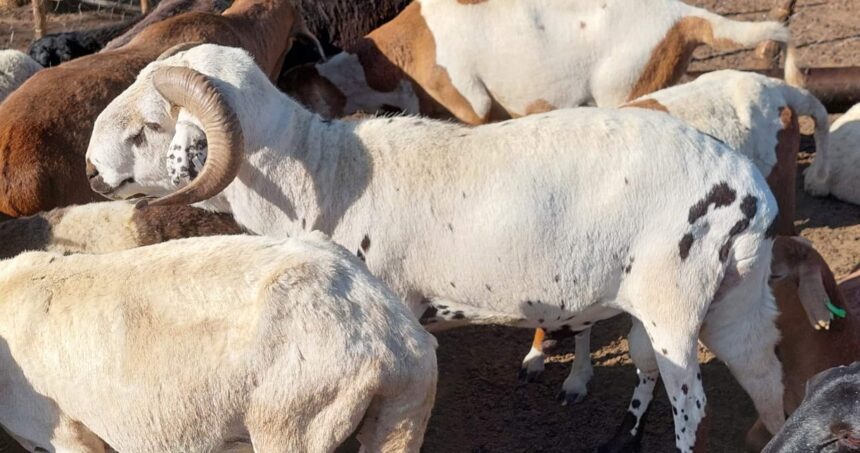Damara sheep, with their distinctive appearance and remarkable adaptability, have become an increasingly popular choice for farmers in South Africa. Originating from Namibia, these hardy sheep are well-suited to the country’s diverse climates and rugged landscapes. Whether you’re a seasoned breeder or considering venturing into Damara sheep farming, here are ten key insights that you should know about breeding and farming Damara sheep in South Africa.
- Indigenous African Breed:
Damara sheep are an indigenous African breed, originally hailing from the semi-arid regions of Namibia. Bred for centuries by the Damara people, these sheep have evolved to thrive in harsh environmental conditions, making them well-suited to South Africa’s arid and semi-arid regions. - Adaptability to Harsh Conditions:
One of the most notable characteristics of Damara sheep is their exceptional adaptability to harsh environmental conditions. With their thick, woolly coats and robust constitutions, Damara sheep are well-equipped to withstand heat, drought, and sparse vegetation, making them ideal for extensive farming systems. - Heat Tolerance:
Damara sheep exhibit a high degree of heat tolerance, which is essential for thriving in South Africa’s warm climate. Their ability to regulate body temperature effectively allows them to remain productive even during periods of intense heat, minimizing heat stress-related health issues. - Parasite Resistance:
Damara sheep have developed natural resistance to common livestock parasites such as ticks, worms, and internal parasites. This inherent resistance reduces the need for chemical treatments and minimizes production losses, making Damara sheep an attractive option for sustainable farming practices. - Grazing Efficiency:
Damara sheep are proficient grazers and foragers, capable of efficiently utilizing sparse vegetation and converting low-quality forage into valuable meat and milk. Their browsing behavior and selective feeding habits allow them to thrive in extensive grazing systems with minimal input requirements. - Reproductive Efficiency:
Damara sheep are known for their high reproductive efficiency, with ewes exhibiting good fertility rates and excellent maternal instincts. This makes Damara sheep an attractive option for commercial breeders seeking to maximize flock productivity and genetic diversity. - Growth Rates and Carcass Quality:
While Damara sheep may not reach the same growth rates as some commercial meat breeds, they are renowned for their lean meat quality and distinctive flavor. Their ability to produce tender, flavorful meat with minimal fat marbling makes them a preferred choice for discerning consumers and specialty markets. - Importance of Breed Standards:
When breeding Damara sheep, it’s essential to adhere to breed standards and select animals that exhibit desirable traits such as conformation, coat quality, and reproductive performance. By maintaining breed purity and selecting for superior genetics, breeders can optimize flock productivity and performance. - Disease Management:
Although Damara sheep are relatively resistant to many common livestock diseases, proactive disease management practices are essential for maintaining herd health and productivity. This includes regular vaccinations, parasite control measures, and biosecurity protocols to prevent the introduction and spread of infectious diseases. - Commitment to Sustainable Farming Practices:
Successful Damara sheep farming requires a commitment to sustainable farming practices that prioritize environmental stewardship, animal welfare, and economic viability. By implementing holistic management strategies, such as rotational grazing, water conservation, and biodiversity enhancement, farmers can create resilient and thriving farming systems that benefit both people and the planet.
Breeding and farming Damara sheep in South Africa offer numerous opportunities for livestock producers to thrive in a challenging and dynamic agricultural landscape. By harnessing the breed’s unique characteristics, including adaptability, resilience, and reproductive efficiency, farmers can build sustainable and profitable sheep enterprises that contribute to food security and rural development. With a deep understanding of Damara sheep genetics, behavior, and management requirements, breeders can unlock the full potential of these remarkable sheep and ensure their continued success in South Africa’s diverse farming sector.
Join 'Farmers Mag' WhatsApp Channel
Get the latest Farming news and tips delivered straight to your WhatsApp
CLICK HERE TO JOIN






